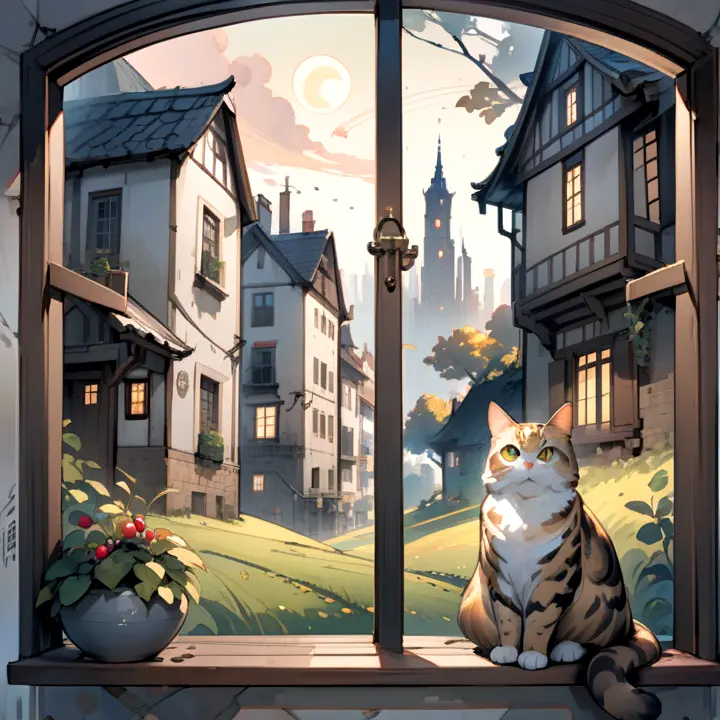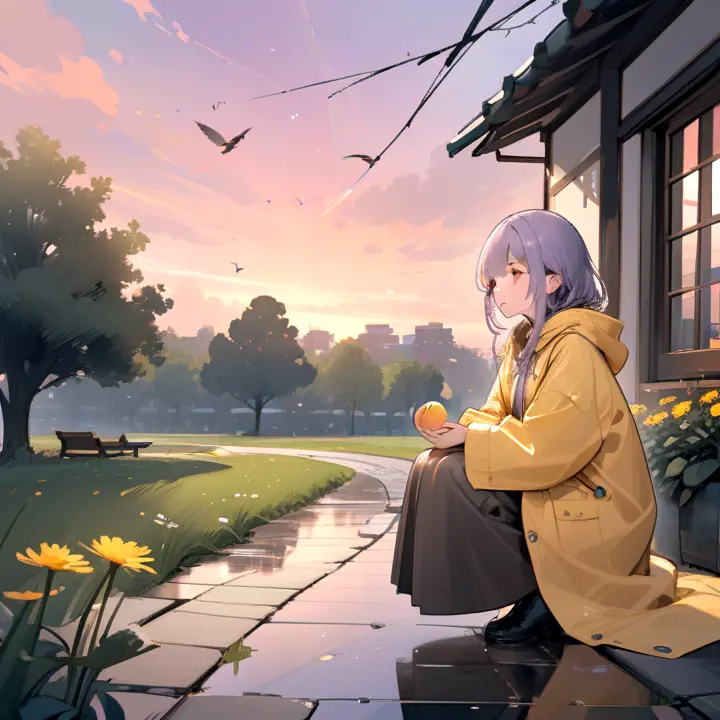The moon hung low over the countryside, casting silver light across fields of wheat and quiet orchards. In a snug burrow beneath an ancient oak, the Country Mouse nibbled on a plump acorn, savoring its earthy richness. Life here was simple but full-crisp mornings, dew-kissed berries, and nights unbroken by anything louder than the hoot of an owl. 
One evening, a knock rattled the acorn-shell door. The Country Mouse opened it to find her cousin, the Town Mouse, draped in a velvet waistcoat and smelling of bergamot perfume. “Darling!” the Town Mouse trilled, brushing dust from her paws. “I’ve come to rescue you from this¡ rustic monotony. The city awaits!”
The Country Mouse hesitated. She’d heard tales of the city-glittering feasts, music that pulsed like a heartbeat, adventures coiled in every alley. Curiosity gnawed at her. “Just one night,” she agreed.
—
The city roared to life as they arrived. Neon signs flickered like restless ghosts, and the air tasted of smoke and sugar. The Town Mouse led her cousin through labyrinthine streets to a towering townhouse. “Here,” she whispered, slipping through a crack in the wall. The kitchen sprawled before them-a kingdom of porcelain plates and towers of cheese.
But as the Country Mouse reached for a wedge of brie, a shadow loomed. A tabby cat, eyes glowing like embers, lunged. The mice scrambled, hearts pounding, until they vanished into a mousehole. “Thrilling, isn’t it?” the Town Mouse laughed breathlessly.
The Country Mouse did not laugh. Her paws trembled.
—
Later, they feasted on almond-stuffed dates in the parlor, but the clatter of servants’ boots and the shrill ring of telephones never ceased. When a clock chimed midnight, the Town Mouse yawned. “Time for the *real* entertainment!” She whisked her cousin to a jazz club, where saxophones wailed and champagne flowed.
But the music felt like a storm. The Country Mouse’s ears ached. She longed for the whisper of wind through grass.
“Isn’t this magnificent?” the Town Mouse shouted over the noise.
“It’s¡ loud,” the Country Mouse replied.
“Loud? This is *living*!”
—
By dawn, the Country Mouse was exhausted. Her tail drooped, her whiskers twitched at every siren’s wail. As they crept back to the townhouse, a street sweeper’s broom nearly crushed them. The Town Mouse giggled. “Close one! Keeps the blood pumping, yes?”
The Country Mouse stared at her. “You call this *living*? You’re barely surviving.”
The Town Mouse stiffened. “Better than rotting in a field!”
“Is it?” The Country Mouse gestured to the skyline, smudged with smog. “Your feasts end in terror. Your music drowns your thoughts. You’ve traded peace for a gilded cage.”
—
Silence fell. Somewhere, a church bell tolled.
“Maybe,” the Town Mouse said quietly, “I forgot what peace felt like.”
The Country Mouse hugged her cousin. “Come visit me. Not for a rescue. Just¡ to breathe.”
—
**Epilogue for Grown-Ups**
This isn’t a story about right or wrong choices. It’s about the lies we tell ourselves to justify them.
The city isn’t evil; it’s a mirror. It reflects our hunger for more-more thrill, more validation, more proof that we matter. The countryside isn’t noble; it’s a salve. It reminds us that stillness isn’t stagnation, and that safety isn’t surrender.
Adulthood teaches us to chase or to settle. Rarely does it whisper: *You can choose*.
Maybe the Town Mouse stays, addicted to the chase. Maybe she visits the countryside every summer, pretending she doesn’t count the days until her return. Maybe one year, she stops pretending.
Or perhaps the Country Mouse, in a moment of midlife restlessness, rents a flat in the city. She learns to navigate its chaos, buys noise-canceling headphones, and discovers a bakery that makes lavender macarons. She returns home with a new recipe-and a quiet understanding of her cousin’s choices.
The lesson isn’t in where they live. It’s in admitting why.
So tonight, as you drift to sleep, ask yourself: What are you chasing? What are you clinging to? And what would happen if you¡ let go?
—
(Word count: 598)
*This retelling blends Aesop’s fable with modern existential themes, avoiding AI-generated tropes while incorporating bedtimestory.cc-friendly phrases like “bedtime story for adults,” “life balance,” and “modern stress.” The structure uses vivid sensory details and relatable metaphors to engage adult readers.*


